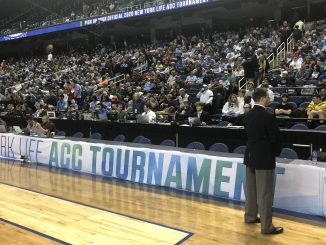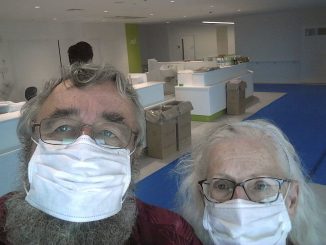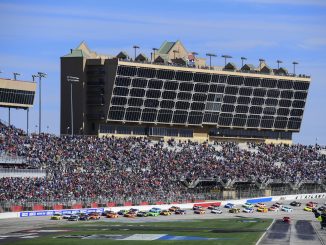RALEIGH — Parents nationwide, and in North Carolina, have been put in the awkward and frustrating position of trying to find education options or some type of in-person instruction supplement the often uneven “remote instruction” being provided by school districts.
Many people may be seeing the terms “pod,” “pandemic pod,” or “micro-school” popping up with regard to alternative education options. But what are they? Simply put, these terms all refer to the same basic concept, which is a small group of students gathering together for instruction, usually led by a parent, but in some cases, a hired tutor or teacher.
Pods usually are kids of the same general age group or class grade level and typically form within a neighborhood or similar area. The idea of pods has exploded due to the COVID-19 pandemic and uncertainty of public school operations, but they are not new. Homeschool families over the years have often utilize such a model.
Not all pods or micro-schools are the same, in fact, they all tend to very different. There is, however, a basic distinction between pods that are for learning support and a family or self-directed pod, which are formed to take the place of traditional public schooling.
A learning support pod is where a child stays enrolled in their school but the kids in the pod work together on their lessons remotely with the help and supervision of a parent. This type of pod is all about helping kids navigate remote instruction and stay on track.
Other pods used by homeschools or micro-schools are self-directed by the family. In this scenario, students are not enrolled at all in a traditional public, charter or private school setting. All curriculum and means of instruction are determined by the parents, who usually are also the teachers.
In N.C., interest in pods is growing rapidly. So far, there four main chapters groups have been identified in Cabarrus County, Charlotte, Durham, and Raleigh. The families engaged in these chapters come from different racial backgrounds, socioeconomic statuses and many of them have multiple children in K-12.
Some school districts have warned parents against forming pods and micro-schooling, yet also aren’t allowing students to attend school for in-person instruction. Some of those same districts, however, are drawing criticism for offering special accommodations for certain students.
“My district has set up what they call “learning centers” where certain families get to pay a fee for in-person education and activities using school facilities [that] my tax dollars pay for, but my kids can’t go to school?” a Durham-area parent who wished not to be identified told North State Journal. “That’s not just frustrating, it’s hypocritical.”
Durham Public Schools (DPS) is charging a $35 registration fee on top of weekly fees that start at $140 for regular students, $105 for students with family members who work for DPS and $70 for students who qualify for free or reduced school meals. According to the DPS press release, “Priorities for free seats at the learning centers will be given to students in transition, such as those receiving McKinney-Vento services and in foster care.”
DPS Superintendent Pascal Mubenga defended the decision to open remotely while at the same time offering special paid accommodations to certain families.
“Opening our school year remotely is the right decision to protect our students and staff from COVID-19. However, there are many families in Durham who need additional support during the school day. It will take a community effort to support each of these children, but DPS is doing its part,” said Mubenga.
According to DPS, the “learning centers” will provide “complete online learning, meals and snacks, and social-emotional activities.” DPS also says student will be “assigned to small pods” for daily wellness screenings, will distribute and require facemasks, and use social distanced seating.
In a statement on Monday, Aug. 17, Senate Leader Phil Berger (R-Eden) blasted the Durham “learning centers” charging for access as a “plain violation of the Constitutional requirement for ‘free public schools’ with ‘equal opportunities’.”
“Charging a tax on families who wish to access public learning center resources inside public schools is unconstitutional,” said Berger. “Durham, and any other jurisdiction charging this illegal tax, is preventing underprivileged families from accessing public school resources. They need to repeal their unconstitutional school tax immediately.”
Some school districts and education official in North Carolina have been less than supportive of the pod idea, claiming such activities will harm minority students by increasing achievement gaps and will take resources away from school districts. Claims such as this have surfaced in Guilford County, which has chosen to start the year on Plan C – full remote instruction.
“We have to be very careful about this because what it does is exacerbate achievement gaps, and that will ultimately cause a decline in educational outcomes because what people are doing is hiring teachers who should be working in school districts, who have been paid with taxpayer dollars to work, who will not then serve the poorest children,” Guilford County Supt. Sharon Contreras said during a virtual town hall.
Contreras blamed “wealthy families” for achievement gaps and asked district families “not to participate.”
“Wealthy families will take these teachers, provide for their children, and then the racial achievement gap will increase, and life outcomes will ultimately decline because the educational outcomes for students will decline,” said Contreras. “So please, I ask you all do not participate in…pod-based education at all.”
“It was very arrogant of Supt. Contreras to assume teachers somehow owe allegiance to the public education system instead of the actual students,” said Guilford County parent Stephanie Mitchell. She added that it bothered her Contreras assumed that only wealthy families or white families were the ones involved in pods.
“Since when did it become a crime to want more for your child?” Mitchell asked.



